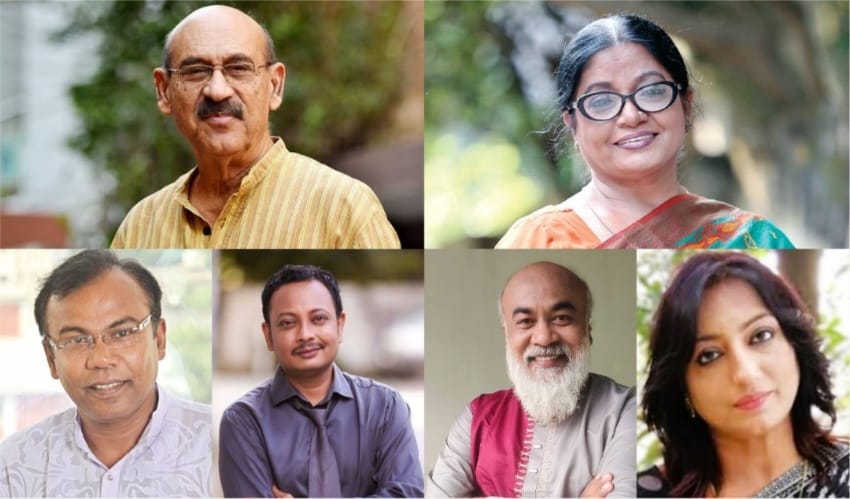Once the familiar faces in living rooms, the actors who portrayed parents, uncles, and other elder roles in Bangladeshi television dramas are now quietly disappearing from the screen. These artists built their careers playing the emotional anchors of family stories, now finding themselves with fewer opportunities than ever before.
Where steady work was once the norm, many now spend weeks or even months without a single call. As audience preferences shift toward younger, faster content, veteran performers are being pushed to the sidelines, caught in an industry that seems to be moving on without them.
“Acting is how I support my family. Even if I’m not appreciated now, perhaps after I’m gone, people will remember me for my simplicity and honesty.” These are words written by actress Mou Shikha in a recent Facebook post.
Known for her roles as mothers and aunts in TV dramas, Mou Shikha revealed she has not had any work for the past two and a half months. Where she once worked 20 days a month, she now barely manages five. The lack of work has made life increasingly difficult.
Her situation is far from unique. Many artists say conditions have deteriorated even further. A Facebook group named ‘Babader Dol’, composed of actors who have played the roles of fathers on the small screen, has reported a significant drop in work among its 35 members.
Speaking to The Times of Bangladesh, the group’s admin and actor Harunur Rashid said, “Previously, most of us worked regularly. But now, aside from a few, almost no one is getting consistent work.”
Harun shared that he used to earn Tk 5,000 to Tk 6,000 per drama, bringing in over Tk 1 lakh a month. Now, his income has more than halved, making it hard to cover household expenses and school fees for his children.
Veteran actor Abul Hayat, who has worked in stage, TV and film for 60 years, echoed similar concerns. “Everything is now about likes and views. Filmmakerssay that casting older artists or those who play such roles ruins the visual appeal of the screen. That’s nonsense. If they can’t make use of our experience, it’s their loss.”
Actor Fazlur Rahman noted that work opportunities have dropped by 60 per cent, especially with the decline in single-episode dramas.
“TV channels aren’t producing as many of them. Since the pandemic, I’ve already reduced my workload. But for younger or mid-career artists and production companies like Light House, the situation is dire. Many companies are shutting down and laying off workers,” the actor said.
Actress Dolly Zahur voiced her frustration, “Parents are no longer valued in today’s dramas, especially on YouTube. If you want to portray meaningful family bonds, you need diverse characters. Without them, these stories fall flat. But if directors and producers don’t understand this, what can we do?”
So, what is behind this sharp decline in character roles and traditional storytelling?
Most artists point to the country’s worsening economic situation and a drastic drop in investments to produce dramas.
Rashed Mamun Apu, General Secretary of the Actors’ Association, explained, “People are struggling to meet basic needs, so investors are hesitant. Plus, income from Facebook and YouTube has fallen significantly. The entire ecosystem is hurting and artists are facing a real crisis.”


